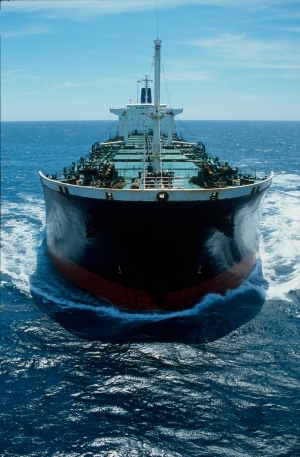


(Posted on 01/03/25)
The global bulker fleet is facing a significant slowdown, driven by a combination of factors that are not only causing a decline in average speeds, but also setting the stage for the emergence of a two-tier market according to Veson Nautical, a global leader in maritime data and freight management solutions.
A new report: ‘Why is the bulker fleet slowing down? The impact of an ageing fleet in the era of efficiency’ states that ageing vessels, stricter emissions regulations, and evolving market dynamics are all factors in the lower average speeds being witnessed.
The report cites data that suggests that older vessels, particularly those built before the Energy Efficiency Design Index (EEDI) criteria was enforced in 2013, have seen a noticeable decrease in speeds, relative to newer vessels and that this is the single largest contributory factor to the slowdown of the global bulker fleet.
“We can conclude that a surplus of older, inefficient vessels in the fleet, which are now penalised by efficiency regulations for sailing at higher speeds, are a driving factor in declining average speed overall,” says report author Oliver Kirkham, Senior Valuation Analyst at Veson Nautical. “However, the decline in average speeds is not just a matter of operational efficiency; it’s a sign of a deeper shift in the bulker market, where modern, compliant vessels are set to command a premium as older ships struggle to keep pace."
The report adds that the massive expansion of the bulker fleet during the mid-2000s, spurred by China’s economic growth, has left a large portion of the fleet increasingly inefficient. These vessels are now struggling to meet modern efficiency standards, creating a growing divide between newer, more efficient vessels and older ships that are nearing the end of their operational lives.
“The difference in terms of efficiency between new bulker vessels and vessels even from five years ago is significant as improved design, fuel efficiency and compliance with green regulations really start to make an impact,” Kirkham says. “These modern vessels are expected to command a premium especially in markets such as the US and Europe that have stringent age restrictions and carbon regulations.”
The report concludes that a declining number of transactions of modern bulker vessels in the sales and purchase (S&P) market is evidence that new bulker vessels are providing commercial advantage and emissions compliance which enables owners to command a premium for their charter. However, some markets are still open to ageing vessels, especially when transporting cargoes with negligible time constraints.
“As emissions regulations continue to tighten globally it is clear that ageing vessels will be pushed into niche markets while newer vessels will dominate more profitable routes,” Kirkham says. “However, the shipping industry as a whole is currently lacking a standardised and transparent system to offer precise and conclusive proof of a vessels’ fuel and carbon efficiency, and this will need to be resolved as the market evolves.”
Veson Nautical empowers the global maritime industry to navigate compounding complexity on all sides of the trade. With a heritage of innovation and expertise across all maritime related contracts, Veson serves more than 38,000 users across 2,400 companies in more than 100 countries, and is uniquely positioned to enable a decision advantage.
AtoB@C Shipping, a subsidiary of ESL Shipping, has announced the successful delivery of Fleximar, the... Read more
Western Bulk, together with reputable Norwegian partners A/S J. Ludwig Mowinckels Rederi, Premium Maritime... Read more
Pacific Basin Shipping Limited, one of the world’s leading dry bulk shipping companies, has announced... Read more
Columbia Group anticipates a period of strong expansion as an increasing number of international shipowners... Read more
Norse?Ship Management has expanded its use of Smart Ship Hub’s high frequency sensor data and... Read more
As the maritime industry gears up to welcome the IMO’s STCW bullying and harassment training amendments... Read more
NORDEN has acquired the cargo activities of Taylor Maritime in Southern Africa (previously operated... Read more
Philippos Ioulianou, Managing Director of EmissionLink, has warned the IMO’s decision to delay... Read more
VIKAND has highlighted the need for cultural change in the maritime sector as reports of bullying, harassment... Read more
The maritime industry is experiencing a period of significant transformation, driven by rapidly evolving... Read more